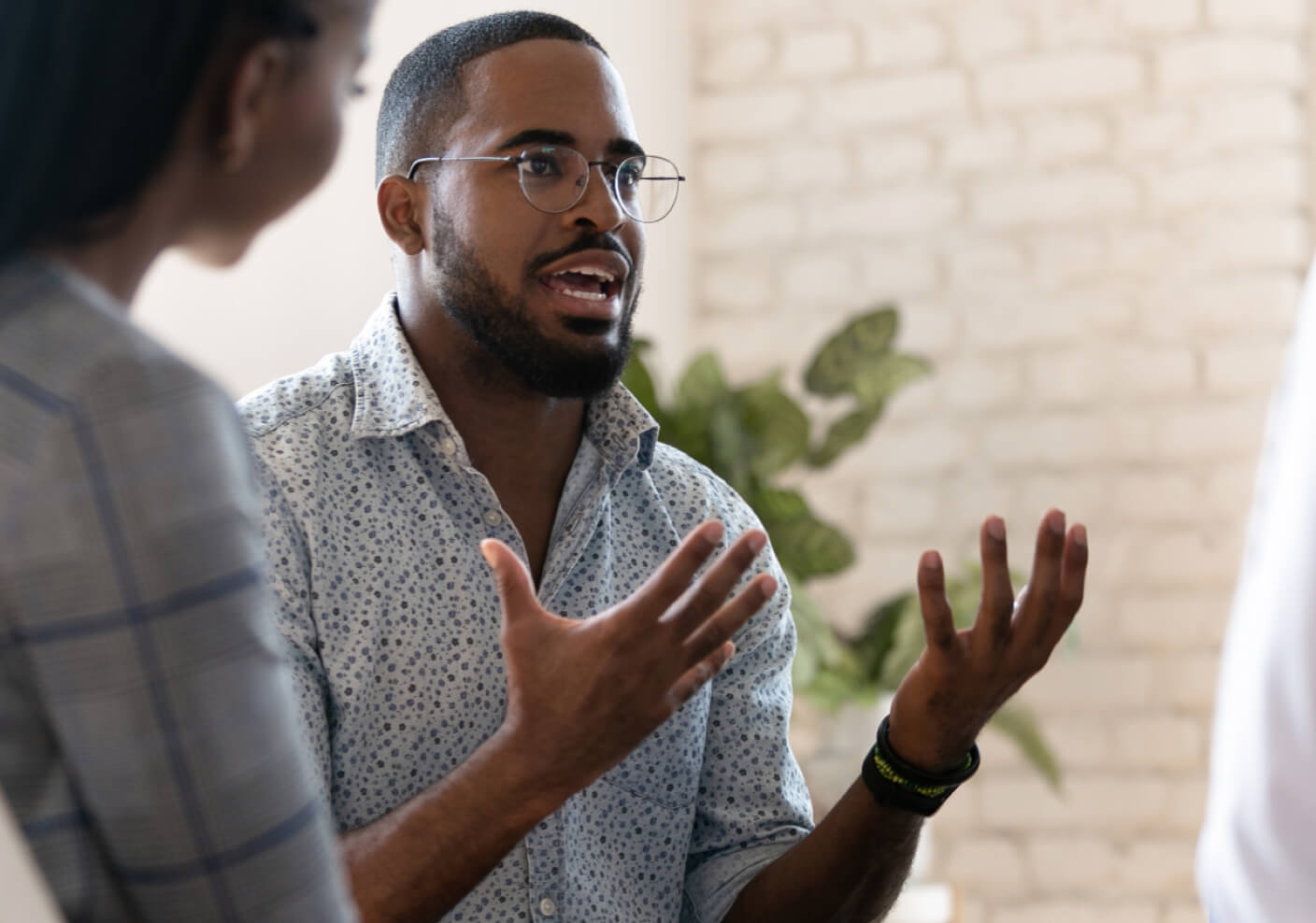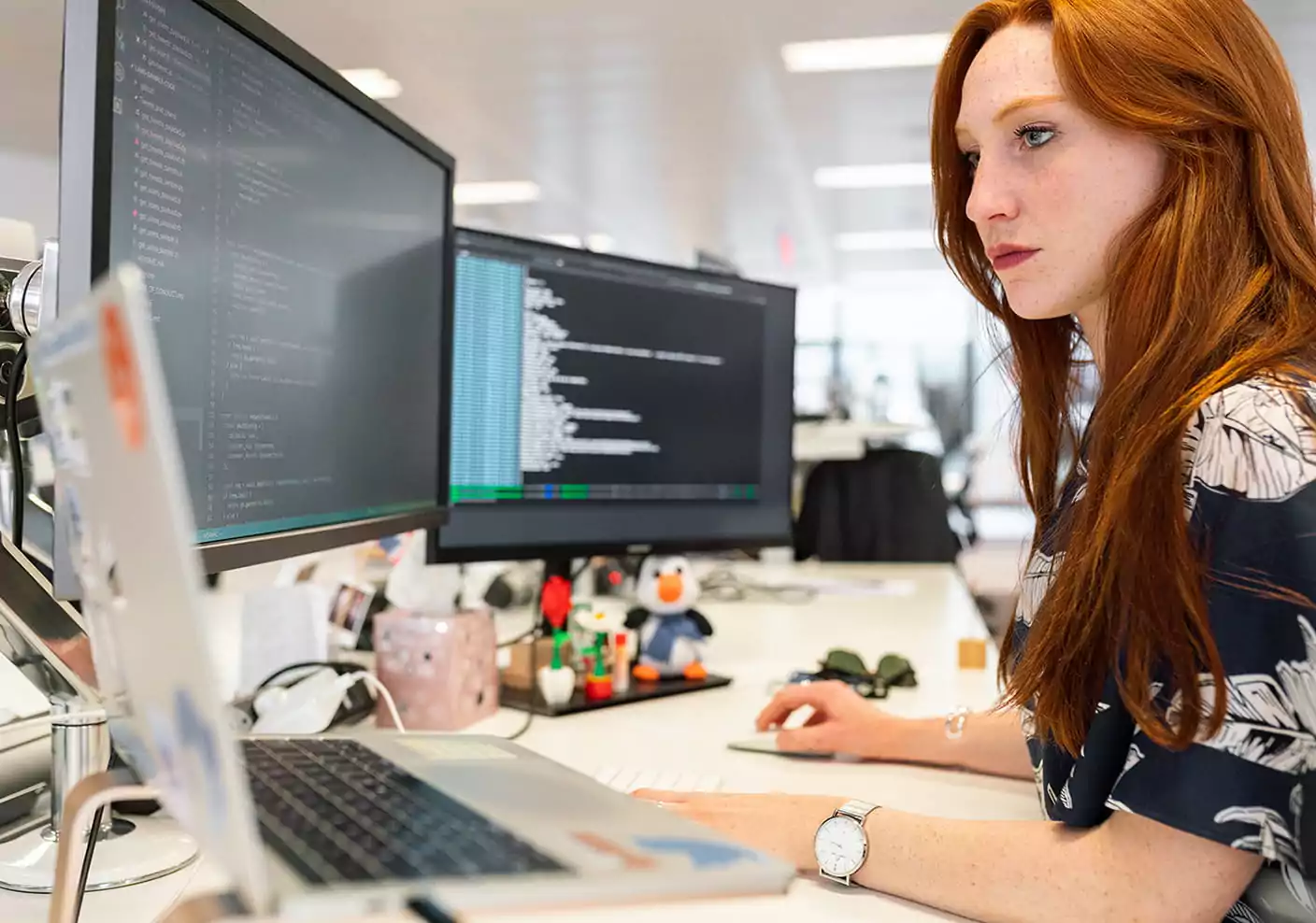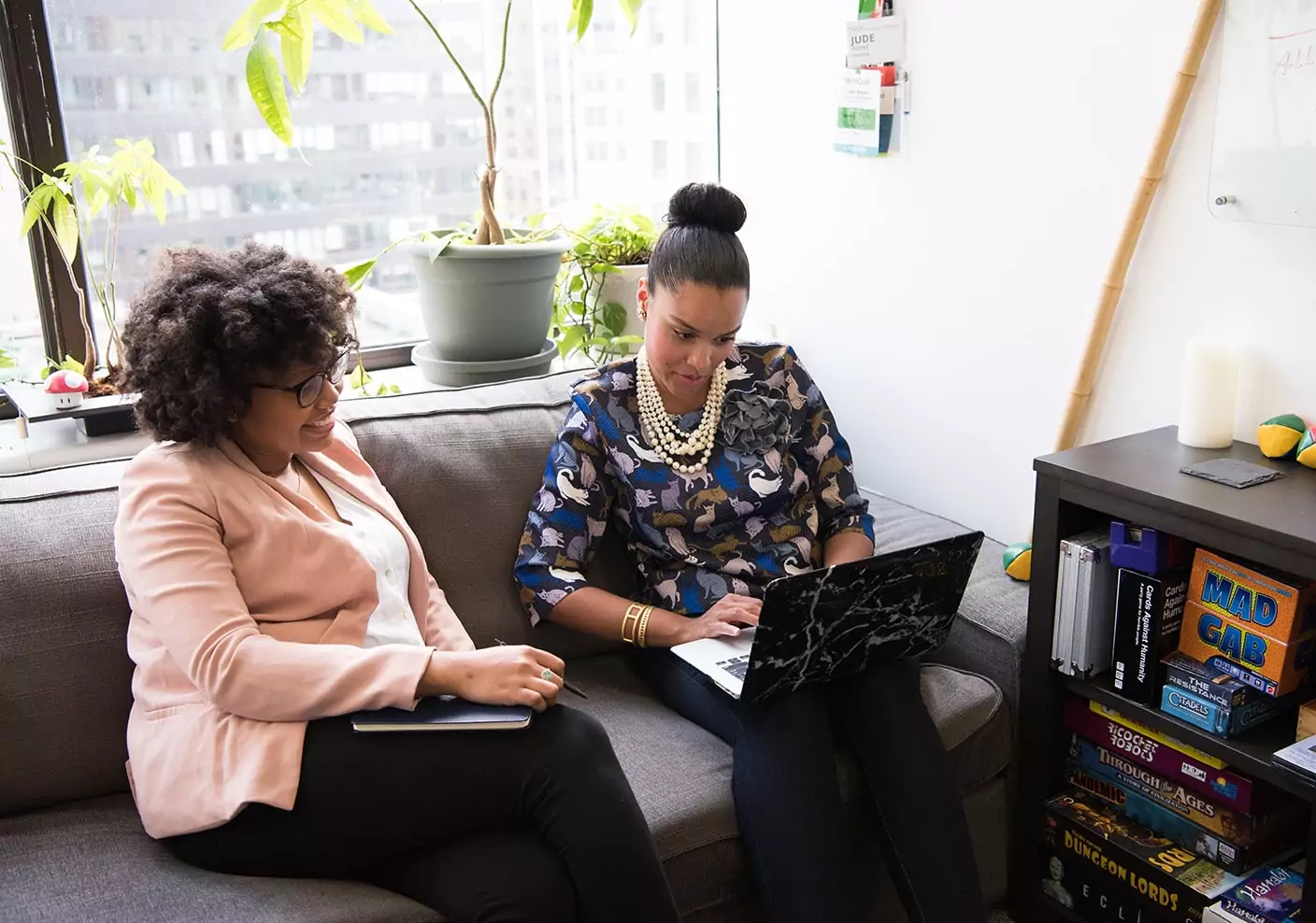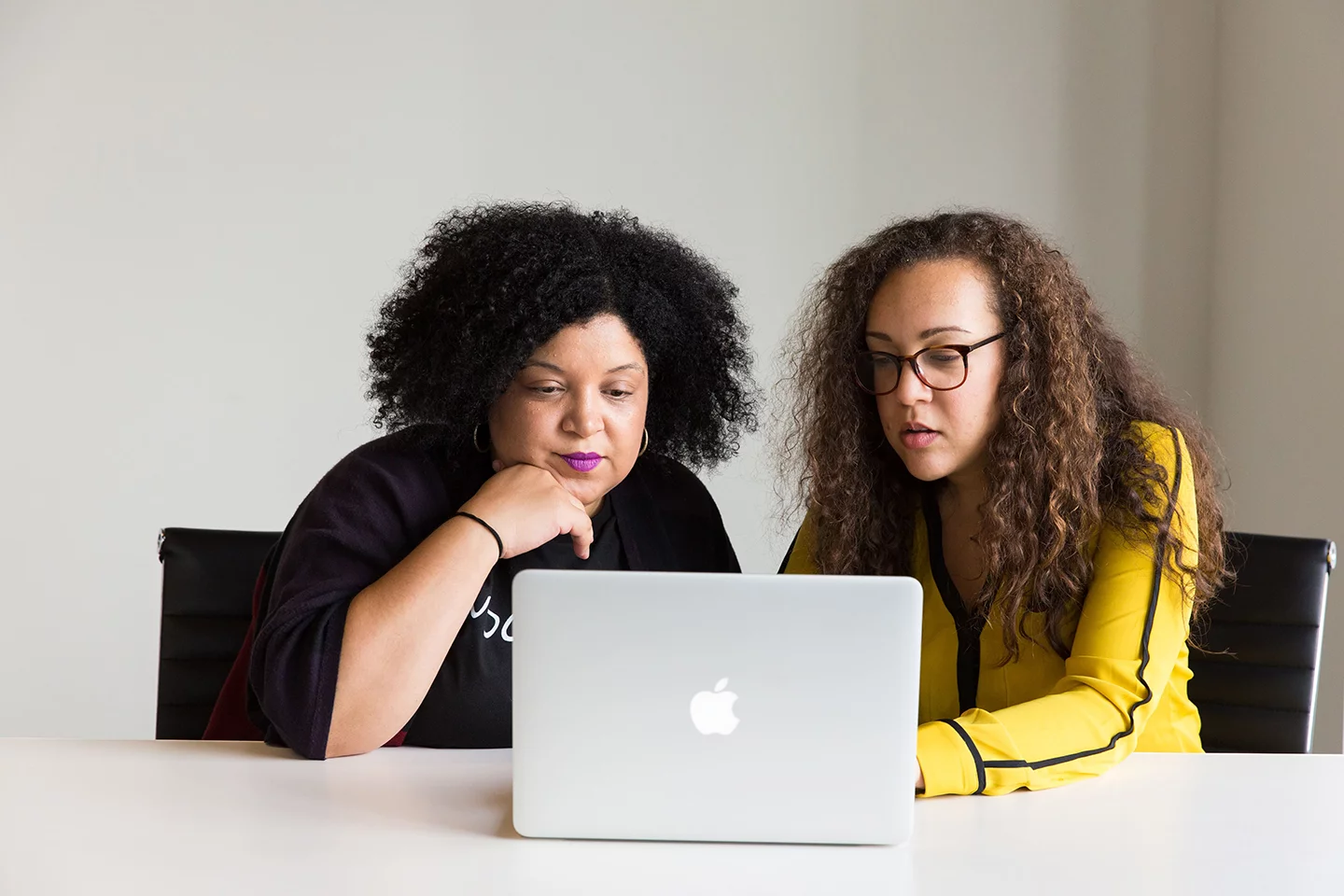We recently continued our Future of Work Virtual Roundtable Series with a session featuring Anashay Wright, an award-winning educator, speaker, consultant, and founder of Disruptive Partners. Disruptive Partners is a minority-led nonprofit organization that is committed to advancing sustainable change within systems and institutions for generations to come.
Below is an excerpt of Anashay’s presentation.
“I always lead with I’m a mother first. I am a wife. I am an educator. I am a true disruptor. Anyone that will tell you, know that I believe in making good trouble. It’s all in service of humanity.
Today we’re talking about disruptive leadership and more specifically what it means to shift from a place of really restating the problems that we see around us daily, really self-disrupting ourselves in a way that moves us from awareness to action.
Awareness is a lifelong thing, but at some point, we have to just pause and say, “What can I do? How do I shift my focus?” Because otherwise we’ll be inundated with messages, narratives, all types of things, and it’ll stifle us for being the change agents that we want to be. When I think about leadership, I believe there’s a leader in all of us. At the end of the day, we lead ourselves. We are responsible for the moves that we make, the daily moves, the long-term moves, we own that. When our hearts and our minds are connected to our actions, we really can do some truly powerful things.
I’m all about diverse relationship partnerships that move the needle and that unite us against systemic inequities in every major institution and system. I think it’s always important to start with myself and to start with my own disruption. That’s what I want to bring to you and share my pathway to disruption as a leader, and not just as a leader. My pathway to disruption hit me on multiple fronts. That’s why I often tell people to disrupt or be disrupted.
My pathway to disruption hit me on multiple fronts. That's why I often tell people to disrupt or be disrupted.
I grew up in a single-parent home in Metro Atlanta. My mom and dad divorced when I was about three. My dad and I were definitely still very close. My mother remarried, divorced again, and then she passed away at the age of 39. My mom was the epitome of love. She taught me how to love. She taught me to always be a critical thinker. She taught me the question.
My mom got diagnosed with cancer when I was 15. It was my school and it was my community, they wrapped their arms around me. Predominantly African American, community schools. My zip code and my income didn’t define my destiny. It was a constant belief of people around me who sold these words of affirmation for me. Fast forward, I got into education, had some really great results with children. Then I went on to become an advisor, in the field of education management, and really just thought like, “Oh my God,” my dream was to make $50,000. That was like a million dollars to me growing up, especially when you didn’t have much. However, when I got into this education reform space, number one, I did not see people who looked like me. I definitely did not see the diversity of thought and lived experiences as a black female who grew up in a single-parent home, was permanently disconnected from that parent by the time I was age 18. I just didn’t feel a lot of people in the leadership that looked like me who had the same lived experiences, however, I really connected with the community and the people.
But as people say, new levels, new devils. I was getting promoted. I was on my way up. I went up to a VP role for a national education organization. In the midst of that, somewhere along the way, I had to be disrupted. I was advocating for black and brown children, at the table, but my kids weren’t in the same school. While these things are fine, I was making decisions for other kids that weren’t the same decisions I was making for myself, but I didn’t get it. I was in two worlds.
That wasn’t until one day, my 14-year-old came home and said, “I don’t want to be black anymore.” It was gut-wrenching. She was at a predominantly white Christian school. I thought I did everything that I was supposed to do. She came home and this was the assignment that she had been given. They were supposed to be reinforcing colors and character and all that good stuff. As you can see, you get down to dark, which is not a color might I add, and the thought was dark means I am a sinner and I can’t get in, but white means washed clean and now I can get in. That was tough.
I didn’t realize as an influencer, I had internalized racist beliefs. I internalized beliefs about children on the strength of race. I’ve prided myself on being woke, but I had to look at the daily moves and actions that I was making and I needed to be disrupted. That is where this whole movement comes from. There’s a book by Ibram X. Kendi, he talks about it. He says the only thing wrong with black people that we think something is wrong with black people. He says that’s the real black on black crime because we’re all perfectly imperfect. Everything we need is within us.
I had come to that narrative. I made a commitment from that point on. I moved my daughter. I put her in African-centered school. I had to lead with her loving herself because every message that she received in the society said that we weren’t enough. From Disney, the princess and the frog, you get one black princess, she’s the servant or she’s poor and it’s like the frog. There’s all these messages and that’s the disruption. We have to disrupt the stories we are being told every day. We have to unite with people who don’t look like us, don’t think like us, and be willing to listen and embrace different perspectives.
The Power of Self Disruption
That gets into our approach at Disruptive Partners. We position individuals, organizations, and communities to, number one, unite in unorthodox ways by creating that space where the great minds come together. We believe that great minds don’t have to think alike, but they do need to come together. To out-think what we create these experiences that allow the single mom in the black community to unite with the CEO of an organization so that they both can start as trusted advisors and thought partners to one another. Finally, to lead. We believe that the community, the people, staff, everybody, when we do things correctly and we exchange this information, we set individuals up to solve their own problems and to solve their own solution.
That’s what this work ultimately is about. In our first phase, it is always self disrupt. Ask yourself what is your proximity to the problem? Are you in power? Are you positioned to oppress? The second is unite, but not unite for grouping. A lot of times we like to unite with other like-minded people. That’s a nuance there. Are we pushing each other to be innovative, to think about a different way, to honor and respect all people? Again, out-think. Commit. Are we making very real commitments? Are we aligning our Black Lives Matter statements to real strategic priorities, to measurable impact, measurable goals? Then are we coming back around to those most impacted to assess where we are landing on those goals? Finally, to demand. To get clear, to elevate solutions like to shift from the problem to the promise.
Data for Disruption
From there, being honest about historical inequities. We love data, so look at the data. What does it tell us historically has been happening? Then we have to do something different. Then again, the disruption is always harmful narratives. The stories that society has told us, the stories that we have told ourselves, but we never asked the other person. Of course, you have to embrace diverse viewpoints.
When I finally was able to have an interaction where it wasn’t black kids can’t read or what we couldn’t do and they live what we could do, when they shifted from the problem to the promise, I was like, “That’s a co-conspirator. That’s an accomplice.” Even allies have a place. Look at our team at Disruptive Partners, we are very diverse. We know who’s had IEPs when they were kids. We know who comes from places of privilege, who comes from the hood.
It’s the sum of us that is more powerful than any one of us. In a space right now where we have the disease of COVID elevating the disease of racism, we have to unite in ways that are unorthodox and that disrupt the inequities that have always existed. That’s my field.
In a space right now where we have the disease of COVID elevating the disease of racism, we have to unite in ways that are unorthodox and that disrupt the inequities that have always existed.
It’s a human-based approach. We’re just human beings. We have feelings. We have emotions, and often we’re taught not to honor them. You should lean into it because your feelings are the messages. Those are the things that drive you. If you can honor it, you can start to get to the root cause and disrupt even the stories that you’ve been told, like who were you told to look down upon throughout life? There are so many questions that you can ask.
How to Continue This Work During Challenging Times
We’re on Facebook, we have a national group called Disruptive Families Educators Communities United. The first thing is to get in a space where you can learn and hear the lived experiences. That’s step one.
Step two is to disrupt yourself. It’s like every time I get ready to lead and restate the problem, how do I shift to the promise? We can really be concrete. Anytime I’m in a space and the only thing I hear is, “These children can’t read. These kids don’t have the technology,” I’m like, “What do they have?” Being a community with people who push your thinking, not being afraid of it, and then not being afraid to share and listen to other stories.
When I know that I’m going to speak to a CEO, I legit want to know, number one, that how you’re feeling as a human being, what is the story that you’re telling yourself about all of these things. Then I never talk to them about the training and the 360, I don’t. I get clear on what I need to know and I ask it. What I have seen in I would say 100% of the cases, no one else has really come to them with that level of clarity. Now, for all my educators in the audience, I use something called literacy practices. This is where it gets nerdy.
I use literacy as a weapon against injustice, which is what schools should actually do anyway. If I want to get clear on policy, I do a close read. I go back and read it, I think about the questions that don’t make sense, and I go straight to the source. I teach my students to do that. If your peers talk about something like school re-entry, “Hey, let’s come together, and let’s write a letter, and let’s unite, and let’s send it.” People in power, a lot of them have a visceral reaction, but that’s not my problem. My focuses are children and humanity. That’s where my loyalty will always lie.
I use literacy as a weapon against injustice...
As DEI professionals, how do we prepare in advance to be first responders and stay energized when helping others navigate through candid conversations and next steps?
I mean, DEI is not DEI, it’s diversity, equity, and inclusivity, right? I think we’ve shortened it so much that we get lost in it. First responders, people can solve their own problems, so our job and to navigate through candid conversations, navigating insinuates that there’s a level of inauthenticity to that, so that’s a tricky one. I think, again, when educators, or when you’re doing diversity, equity, and inclusion, you want to make sure that you’re inviting those diverse voices because your voice can’t be the only one.
Even as a DEI expert, even in the work that we do, we’re getting ready to launch a program now where when we work with a district, we actually partner them with someone that represents the community in which your strategies in which your work will be implemented. Why not give feedback? If you’re a superintendent, get feedback from people most impacted on the front end. That’s what we do. We create these unique ways to connect people. I get to the root cause of the problem and we connect them to other disruptors they can support.
Again, when you are connected to the community and the people, they can actually teach you something about what’s working. If we’ve been doing this and it’s not working well for black and LatinX children, ask the people who have been doing well with black and Latinx children unless you believe that they don’t exist, and that is a tragedy. Again, we have to ask ourselves what is the story we’re telling ourselves when we don’t engage families? This fall, parents will be very real partners because a lot of kids virtually will be in mom and dad classrooms. You will have to partner with the family in new and unorthodox ways. We need to honor that and make sure we’re training parents, engaging with them 30 minutes a week in community circles to make sure they’re well. We’re all being disrupted right now. Disrupt or be disrupted.
You have to ask people, what are the positive touches they need, what is it that their humanity needs so that you can do that for them. We look at children and say, “Okay, well, this kid is doing that, or this kid isn’t doing that.” Do you know what love looks like to them? Do you know what care looks like? Even my CEOs, I study their humanity. I have one CEO my son calls uncle, he’s a white man. We know he’s not the uncle, but we cultivate love. Love is at the core of what we do because the opposite of that is hate and anger.
I have to temper that because of so many things about our world and our history tells me to be angry at people who don’t look like me. Look at your Facebook timeline. Do you have people from diverse communities? Do you know anybody who is from a low-income part of town, black side of town? Did you invite them to your cocktail conversations? The care comes from us knowing one another as human beings, and it gets easier because we see that at the core of us all, we’re all dealing with some of the same things.”
View a video of this Virtual Roundtable, including a VR simulation.
Subscribe for the latest Mursion articles and updates.
By clicking the sign up button above, you consent to allow Mursion to store and process the personal information submitted above to provide you the content requested. View our Terms and Conditions.




